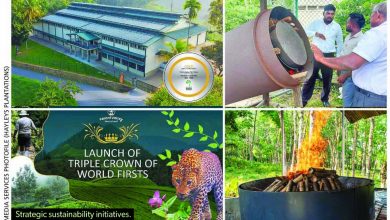YOUTH FORUM
Compiled by Savithri Rodrigo
EQUALITY BEGETS FORTUITY Pravilasha Ramakrishnan dreams of development but without discrimination
A: Let’s begin by reviewing its people. While there are citizens who embody values such as honesty and patriotism, and reject racism and cherish the environment, there are many who impede the country’s progress.
This includes alcohol and drug addicts, as well as those who are likely to commit sexual abuse, and see no positivity in themselves or fellow citizens. People who covet social status, and harbour sentiments against women and other ethnicities, contribute significantly to the island’s problems.
Q: Are there observable opportunities for young Sri Lankans such as yourself?
A: While free education is the most precious opportunity that we enjoy, racism and favouritism are prevalent nationwide – and this discourages the youth. Free healthcare facilities are wonderful from a Sri Lankan citizen’s perspective but the attitude of healthcare personnel and lack of maintenance in the public service are barriers.
Moreover, as knowledge of the Sinhala language is essential to survive in Sri Lanka, not knowing it can be a threat to those from other communities who leave the comfort of their hometowns to seek opportunities in other parts of the country.
Q: Do we have young leaders who can take the country forward? And what traits would you want to see in them?
A: Yes, we do; but if we’re to develop them, our country must acknowledge their talents and leadership abilities beyond conventional qualifications.
The willingness to take risks, positivity, practical application, creativity, understanding of others, efficient resource utilisation, respect for and acceptance of others, adaptability and advocacy for gender equality are traits that young leaders must possess to be future leaders.
Q: So do you believe that Sri Lanka will be united one day?
A: This is possible only when Sri Lankans eschew the labels of being ‘Sinhalese,’ ‘Tamil,’ ‘Muslim’ and ‘Burgher,’ and consider themselves first and foremost members of the human race.
Although it has been over a decade since the civil war ended, the bloody memories continue to linger.
Our country will only be united when we abandon racism – when violence goes silent and terrorism is cowed before humanity. We will be united when everyone acts according to their conscience and hearts.
Q: Where do you see Sri Lanka in 10 years’ time?
A: I dream that Sri Lanka will be truly peaceful, devoid of fear and hunger, and clean. Above all, I hope that it will no longer be a developing country but a developed one. I want to see a country that is filled with people who view problems objectively, stating that ‘we are one country, one nation’ – not merely by voice but from the heart too.
Q: How do you view global poverty and food shortages?
A: Both of these are interrelated topics. A lack of awareness on sustainability and irresponsible habits contribute to food shortages. We do not acknowledge that excessive wastage contributes to a shortage of food.
Food scarcity has a negative impact on economic, environmental and social factors, including poor government policies, crop failure and overpopulation as witnessed in Sub-Saharan Africa. Sri Lanka’s incidence of poverty in relation to consumption is 4.1 percent – i.e. in the single digits – and this is a positive factor.
Q: Who is responsible for climate change or global warming? What must be done about it?
A: Every human being who inhabits Earth is responsible for climate change. Extensive industrialisation has caused climate change with China, the US and Europe being the leading emitters of CO2.
Therefore, it is our responsibility to reduce the demand for energy and increase efficiency, be cost-effective in transportation and developmental needs, foster better resource management and increase the forest cover.
Q: How do you view the growing importance of social media today?
A: Social media has both positive and negative factors depending on how it is used. Today, communication is primarily on social media, and businesses and nations run on it.
But addiction to social media weakens family bonds and its platforms can be used to spread fake or unsubstantiated news instantly, thereby causing conflict.









